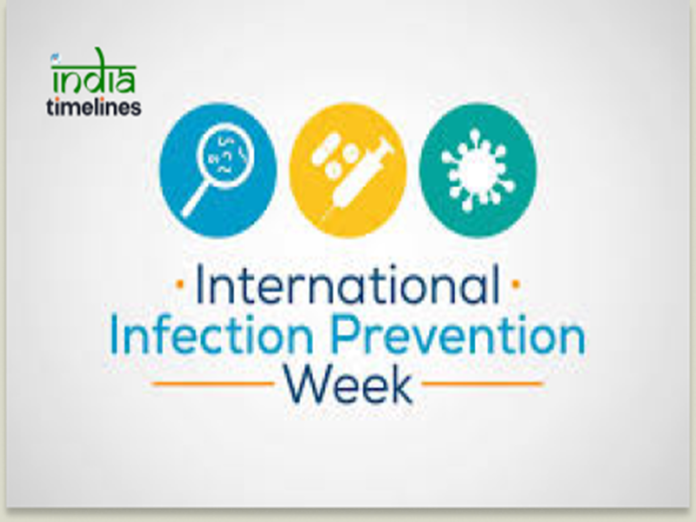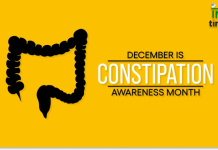
International Infection Prevention Week (IIPW) is a global event observed annually in the third week of October, dedicated to raising awareness about the importance of infection prevention. It plays a crucial role in promoting better healthcare practices, spreading knowledge about infection control, and empowering healthcare workers and the general public to prevent the spread of infections. Established in 1986 by the Association for Professionals in Infection Control and Epidemiology (APIC), IIPW aims to improve public health by educating communities about infection prevention strategies and encouraging proactive measures.
Infections, whether bacterial, viral, or fungal, have posed significant threats to public health throughout human history. The emergence of pandemics such as COVID-19 has further underscored the critical need for robust infection control practices. IIPW serves as a timely reminder that infection prevention is not only the responsibility of healthcare professionals but also of individuals, institutions, and communities worldwide. By raising awareness and promoting best practices, we can all contribute to reducing the incidence and spread of infections in our daily lives.
This article will explore the history of International Infection Prevention Week, its objectives, key themes, the role of healthcare professionals, and the impact of infection prevention on global health. We will also discuss practical tips for individuals and institutions to prevent infections and highlight the importance of fostering a culture of infection prevention beyond the healthcare setting.
The History of International Infection Prevention Week
International Infection Prevention Week was first initiated by APIC in 1986. The aim was to shine a light on the critical role infection prevention plays in the healthcare setting. Over the years, IIPW has grown from a national event to a global initiative, with organizations, governments, and communities around the world participating in awareness campaigns and educational events.
The development of IIPW was in response to increasing concerns about healthcare-associated infections (HAIs) and the rising need for formal infection control practices. In the 1980s, infection prevention was still in its infancy, and healthcare providers lacked the comprehensive knowledge, tools, and guidelines we have today. The creation of IIPW marked a turning point, encouraging more research, education, and public involvement in infection prevention efforts.
Since its inception, IIPW has covered a wide range of themes, each designed to address contemporary challenges in infection prevention. Past themes have included “Break the Chain of Infection,” “Antibiotic Resistance,” and “Infection Prevention is Everyone’s Responsibility.” These themes help to focus global attention on specific issues and encourage the adoption of targeted strategies to combat infections.
Objectives of International Infection Prevention Week
IIPW aims to achieve several key objectives, all of which are focused on promoting better infection control practices and improving public health outcomes. These objectives include:
- Raising Public Awareness: One of the primary goals of IIPW is to educate the public about the importance of infection prevention. This includes spreading knowledge about how infections spread, the risks of HAIs, and the role of individuals in preventing the transmission of infectious diseases.
- Empowering Healthcare Professionals: IIPW serves as a platform to recognize and support the vital work of healthcare professionals, especially infection control specialists. It encourages continued professional development, the adoption of evidence-based practices, and collaboration among healthcare workers to reduce infection rates.
- Promoting Hygiene and Best Practices: Hygiene is at the core of infection prevention. IIPW emphasizes the importance of hand hygiene, proper use of personal protective equipment (PPE), disinfection, and sterilization. These practices are essential not only in healthcare settings but also in everyday life.
- Combating Antibiotic Resistance: Antibiotic resistance is one of the most significant global health threats. IIPW often highlights the need to use antibiotics responsibly and promotes awareness about antimicrobial stewardship programs to prevent the rise of resistant strains of bacteria.
- Encouraging Vaccination: Vaccination is one of the most effective ways to prevent infectious diseases. IIPW promotes the importance of vaccines in protecting individuals and communities from vaccine-preventable diseases such as influenza, measles, and COVID-19.
- Fostering Collaboration: Infection prevention is a collaborative effort that requires the involvement of governments, healthcare institutions, public health organizations, and the general public. IIPW aims to foster this collaboration and create a united front against infections.
Key Themes of IIPW
Each year, IIPW is centered around a theme that reflects current infection prevention challenges and emerging trends. These themes help to guide educational activities, campaigns, and discussions throughout the week. Some of the key themes from recent years include:
- 2021: “Make Your Intention Infection Prevention” – This theme emphasized the power of intention in preventing infections, urging both healthcare professionals and individuals to be proactive in their infection prevention efforts.
- 2020: “Break the Chain of Infection” – This theme focused on the importance of breaking the links in the chain of infection transmission, such as source, mode of transmission, and susceptible host.
- 2019: “Vaccines Are Everybody’s Business” – With the growing global concern about vaccine hesitancy, this theme highlighted the critical role vaccines play in preventing infections and maintaining public health.
- 2018: “Protecting Patients Everywhere” – This theme emphasized the need for infection prevention strategies that go beyond hospitals and are implemented in all healthcare settings, from clinics to nursing homes.
These themes provide direction and purpose to the week’s events and campaigns, ensuring that infection prevention remains a priority in both public and professional settings.
The Role of Healthcare Professionals in Infection Prevention
Healthcare professionals are at the forefront of infection prevention, playing a critical role in safeguarding patients, colleagues, and the wider community. Infection control practitioners, nurses, doctors, and other healthcare workers are responsible for implementing infection prevention protocols and ensuring that they are followed consistently.
Key Responsibilities of Healthcare Professionals:
- Hand Hygiene: Proper hand hygiene is one of the most effective ways to prevent the spread of infections. Healthcare workers are trained to wash their hands before and after patient contact, after using the restroom, and before performing medical procedures.
- Use of PPE: Personal protective equipment, such as gloves, masks, gowns, and face shields, is essential in protecting both healthcare workers and patients from the transmission of infections. Proper usage and disposal of PPE are critical to infection prevention.
- Sterilization and Disinfection: Medical instruments and surfaces must be properly sterilized and disinfected to prevent the transmission of infections, especially in surgical and invasive procedures.
- Infection Surveillance: Monitoring and tracking infection rates in healthcare settings is essential for identifying outbreaks and implementing targeted interventions. Infection control teams are responsible for conducting surveillance and reporting any increases in infection rates.
- Antibiotic Stewardship: Healthcare professionals play a key role in preventing the overuse of antibiotics by adhering to antibiotic stewardship programs. These programs promote the appropriate use of antibiotics to prevent the development of drug-resistant infections.
The Impact of Infection Prevention on Global Health
Infection prevention has a profound impact on global health outcomes. By reducing the spread of infections, healthcare systems can reduce morbidity and mortality, improve patient safety, and lower healthcare costs. Infections such as pneumonia, sepsis, and tuberculosis are major causes of death worldwide, particularly in low- and middle-income countries. Effective infection prevention strategies can help to combat these diseases and improve overall public health.
One of the most significant global health crises in recent years has been the COVID-19 pandemic, which has highlighted the critical importance of infection prevention. The pandemic demonstrated how quickly infections can spread and how devastating the consequences can be when infection prevention measures are not in place. It also underscored the need for global cooperation and the importance of public health education in controlling the spread of infections.
Infection prevention is not limited to healthcare settings; it is also essential in schools, workplaces, and homes. Simple measures such as handwashing, vaccination, and responsible use of antibiotics can make a significant difference in preventing the spread of infections. International Infection Prevention Week serves as a reminder that everyone has a role to play in protecting themselves and others from infectious diseases.
Practical Tips for Infection Prevention
In addition to the efforts of healthcare professionals, individuals can take several steps to prevent infections in their daily lives. Here are some practical tips for infection prevention:
- Wash Your Hands Regularly: Proper hand hygiene is one of the most effective ways to prevent the spread of infections. Wash your hands with soap and water for at least 20 seconds, especially before eating, after using the restroom, and after coughing or sneezing.
- Use Hand Sanitizer: When soap and water are not available, use an alcohol-based hand sanitizer with at least 60% alcohol content.
- Get Vaccinated: Stay up-to-date on recommended vaccines, including those for flu, COVID-19, and other infectious diseases. Vaccination is one of the most effective ways to prevent infections.
- Practice Respiratory Hygiene: Cover your mouth and nose with a tissue or your elbow when coughing or sneezing. Dispose of used tissues properly and wash your hands afterward.
- Clean and Disinfect Surfaces: Regularly clean and disinfect frequently touched surfaces, such as doorknobs, light switches, and phones, to reduce the spread of germs.
- Use Antibiotics Responsibly: Avoid taking antibiotics for viral infections, such as the common cold or flu. Only take antibiotics as prescribed by a healthcare professional.
India Time Lines
Conclusion
International Infection Prevention Week is a vital global initiative that raises awareness about the importance of infection prevention and promotes best practices for controlling the spread of infections. By educating healthcare professionals, institutions, and the general public, IIPW helps to improve public health and reduce the impact of infections on communities worldwide. Infection prevention is not just the responsibility of healthcare providers but of every individual. Through proper hygiene, vaccination, and responsible use of antibiotics, we can all contribute to creating a safer and healthier world. As we observe International




































toobit exchange